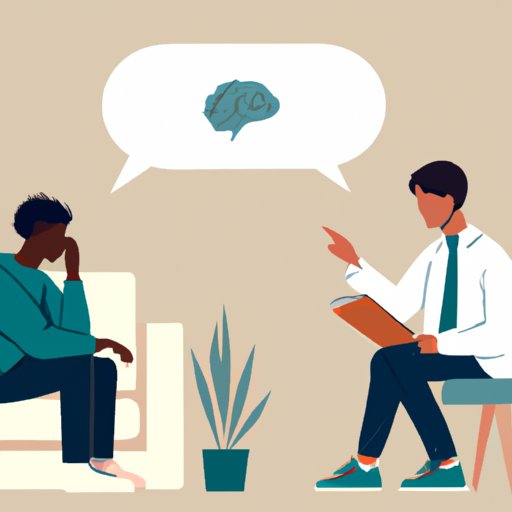
How to Know If You’re Depressed
Depression is a common and treatable condition that many people experience. Despite this fact, it can be difficult to recognize and seek help for, as symptoms can vary widely from one person to another. In this article, we’ll explore the physical and emotional symptoms of depression, self-examination strategies, seeking professional help, coping strategies, and breaking stigma. By the end of this article, you should have a good understanding of how to recognize symptoms of depression in yourself and others, and what steps you can take to address this condition and find healing.
Symptoms of Depression
Depression can manifest in a variety of ways, including physical symptoms like changes in appetite or sleep patterns, low energy, or physical pain or discomfort. Emotional symptoms can include feelings of hopelessness, numbness, or sadness that don’t go away over time. Sometimes people may feel like they don’t enjoy things that they used to enjoy or otherwise feel “flat”.
The symptoms can be different for each person, so it’s important to pay attention to your own feelings and thoughts. If you’re not sure whether you’re experiencing depression or simply going through a rough patch, it’s helpful to talk to a trusted friend or healthcare provider for guidance.
Self-examination Strategies
One effective way to recognize and address depression is by conducting a self-examination of your thoughts and behaviors. This involves reflecting on the way you think about things, your emotions, and your actions, and identifying patterns that may be contributing to your depression.
To conduct a self-examination, try journaling, talking to someone you trust about your thoughts and feelings, or practicing mindfulness. Identifying negative patterns can be difficult, so it’s important to be open and honest with yourself as you work through this process.
Seeking Professional Help
If you suspect that you’re experiencing depression, it’s important to seek professional help right away. Treatment can be very effective in managing symptoms and helping you feel better.
Options for professional help include therapy, medication, or a combination of the two. Your healthcare provider can help you decide which option is best for you. When seeking treatment, it’s important to find a provider who is experienced and specializes in treating depression.
Coping Strategies
There are many strategies you can use to manage your depression symptoms. For example, exercising regularly can be very effective in regulating mood and reducing feelings of anxiety or depression. Mindfulness practices, such as meditation or deep breathing exercises, can also be very helpful in reducing stress and improving overall mental wellbeing.
It’s important to find coping strategies that work for you. Coping strategies can be different for each person, so don’t be afraid to experiment with different techniques until you find the ones that work best for you.
Breaking Stigma
Unfortunately, there is still a lot of stigma and fear surrounding depression and other mental health disorders. This can make it difficult for people to speak openly about their experiences or seek help without feeling ashamed or embarrassed.
To help break down the stigma surrounding depression, it’s important to speak openly about your experiences and encourage others to do the same. Education is also key. By learning more about depression and other mental health conditions, we can help those around us understand and empathize with people who are struggling.
Conclusion
Depression is a common and treatable condition that can affect anyone. By recognizing the symptoms of depression, conducting self-examinations, seeking professional help, utilizing coping strategies, and breaking stigma we can help manage symptoms and work towards healing. If you’re struggling with depression, know that you’re not alone, and that help is available.





